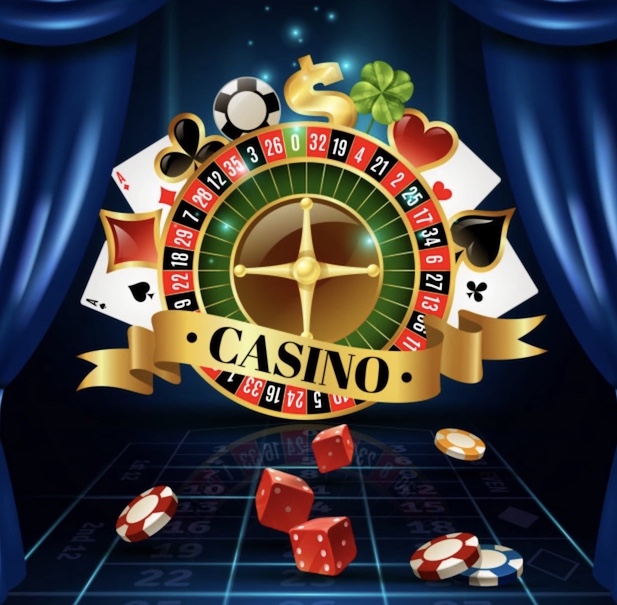Diving Into Board Games: More Than Just Chance
When we think of casino games, the initial pictures that often cross our minds are those of rotating wheel wheels, card chips clinking on fabric surfaces, and dice flying across a gaming surface. While many view these activities as simple hobbies fueled by chance, a more profound exploration reveals a fascinating blend of tactics, skill, and community engagement that raises them well beyond basic chance. Regardless of whether you are a seasoned player or a inquisitive newcomer, understanding the subtleties of these games can greatly enhance your enjoyment and appreciation.
Gambling activities have evolved over centuries, with various cultures contributing to their diverse histories and different forms. From the intricate tactics of 21 to the deception tactics in poker, players engage in a battle of wits as much as a risk on odds. This dynamic interplay between chance and expertise creates a exciting atmosphere that draws countless people to gambling establishments worldwide. As we delve into the realm of card activities, we will reveal the methods that can shift the odds in your favor and the social elements that make these games a favored choice for entertainment and interaction.
A Strategy of Table Gaming
Table gaming often combine a mix of ability and chance, which makes them fascinating for participants who like a challenge. Each title has its own set of guidelines and tactics that can affect the outcome. For instance, in games like blackjack, players are required to use tactics like card counting and understanding the odds to make informed decisions. This skill set can significantly improve their victory potential, differentiating experienced players from novices who may depend entirely on chance.
In contrast, titles such as roulette may appear to be entirely based on luck, but tactical thinking can also play into play. Players can choose between various wagering strategies, such as the Martingale system, in which they increase their bets after losses. This method can establish a more methodical approach to the game. Understanding the odds of specific bets can also assist participants make smarter decisions on the table, showcasing that even games of luck, strategy can enhance the experience.
Additionally, poker stands out as a title that heavily emphasizes tactics. In contrast to most casino titles, poker combines ability, psychology, and luck. Participants must not only focus on the hands they are given but also consider their opponents behavior and betting patterns. Bearbrick888 Mastering principles like table position, pot odds, and interpreting bluffing is essential for winning. This complexity of tactics in the game of poker often creates to a more immersive experience for players, where their decisions and abilities greatly impact the game’s outcome.
Grasping Probability and Ratios
In the realm of gambling games, likelihood and odds have a crucial role in deciding a player's potential outcomes. Every game has its own set of guidelines that dictate how the chance of succeeding or failing is calculated. For instance, in games like 21, participants have a chance to modify their ratios through planning, whereas in matches like the wheel, the outcomes are exclusively dictated by luck. Bearbrick888 MY Comprehending how these chances are measured can substantially impact how a gambler deals with the match.
Ratios are typically presented in two formats: fractional and decimal. Ratio odds indicate the proportion of the sum won to the sum staked, whereas decimal ratios show the total return for a winning wager, including the initial bet. For instance, if a match has odds of 5 to 1, this implies that for every one dollar bet, a player could gain five dollars if successful. Understanding how to interpret these ratios enables players to assess their potential earnings and formulate more informed choices during play.
Players should also be aware of the house edge, which is the casino's inherent advantage over the players. Each game has a distinct advantage, and understanding this idea is important for handling one's hopes and budget. Activities with a lower house edge, such as blackjack and chemin de fer, typically offer superior odds for players compared to activities like slot machines and keno. By recognizing the relationship between chance, odds, and the casino advantage, gamblers can enhance their gaming engagement and strategize more efficiently.
The Aspect of Table Gaming
Table games at casinos are often seen as a hub of community engagement, bringing participants together in a collective experience that extends far past the mere act of playing games. The atmosphere at a blackjack table can be electric, with gamblers engaging not only with the game itself but also with each other. Joy, cheers, and, occasionally, playful teasing create connections that improve the overall enjoyment of the gaming experience. This communal aspect can turn a alone endeavor into a dynamic social event, making table games particularly appealing.
One of the fascinating elements of table gaming is the way it fosters camaraderie among participants. Whether it's collaborating to defeat the dealer at a dice table or sharing stories between hands in a poker game, the environment encourages communication. Participants often share advice or tactics, creating a sense of togetherness that boosts the fun. This social dynamic can make new players feel included and less intimidated by the competitive nature of casino games. As the game continues, friendships may form, leading to a sense of connection that keeps players coming back to the table.
Moreover, the social aspect of gaming at tables extends outside just the players. Casino staff play a crucial role in encouraging interaction and maintaining the flow of the game. Their ability to engage gamblers with warm dialogue and their expertise in running the table can create an inviting atmosphere. This connection between participants and staff adds another layer of enjoyment, where players feel bonded not only to each other but also to the staff. Such interactions are often what make the experience memorable, as players leave with tales to tell and connections made, reinforcing the notion that table games are truly about something greater than luck.

